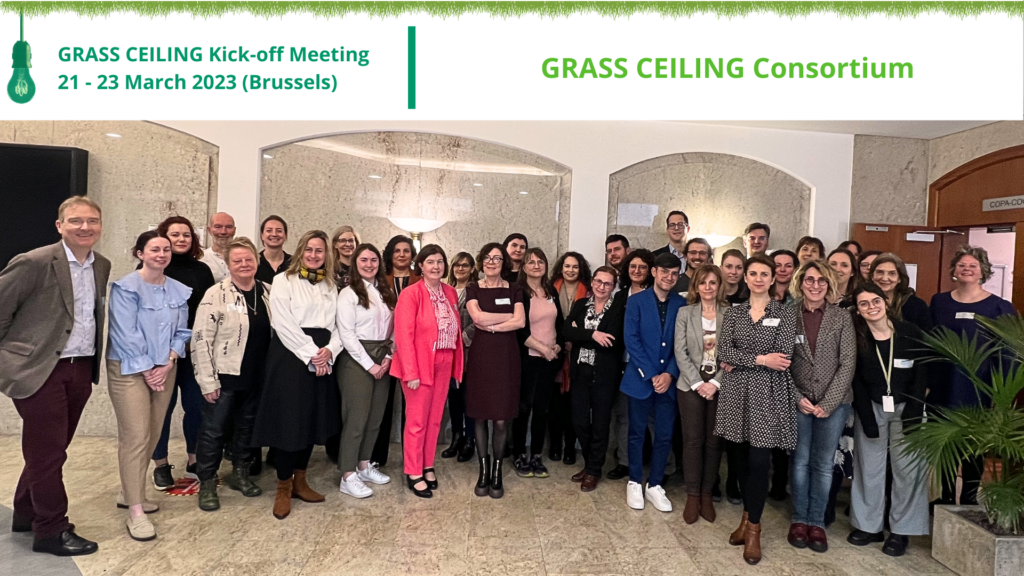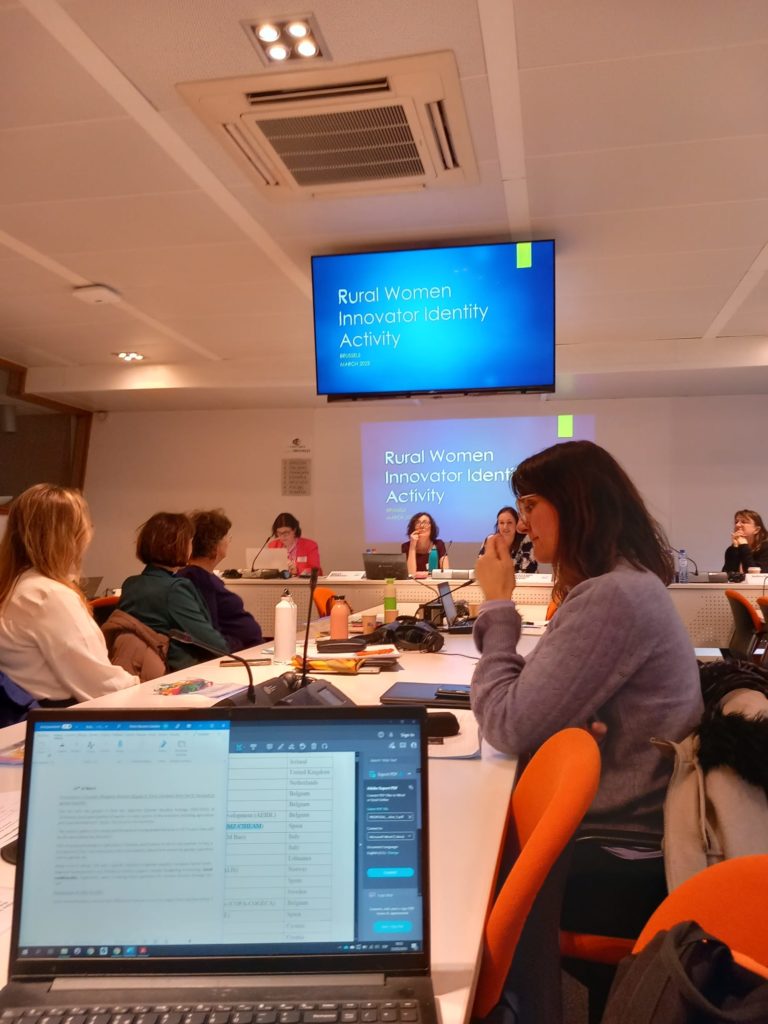
A reflection about the GRASS Ceiling Kick-Off meeting (Brussels, 21-23 March 2023)
Written by Pedro Navarro Gambín.

This article aims at sharing four reflection points about the kick-off meeting of the Horizon Europe project GRASS Ceiling (Gender Equality in Rural and Agricultural Innovation Systems), held in Brussels from the 21st to the 23rd of March. For more detailed information about the content and goals of GRASS ceiling, I invite you to read the media release that was recently published in this same website.
Firstly, I want to comment on the high relevance of the research topic. The political momentum, with the development of the EU gender equality strategy or the explicit recognition of gender equality as a goal of the Common Agricultural Policy (CAP); the enormous social interest, and the possibility to influence policy making (see next paragraph) will probably favour the development of the project and the dissemination of its results. Moreover, a good level of excitement was present in every intervention during the meeting. Some of the coordinators (i.e., Sally Shortall from the South-East Technological University or Bettina Bock from Wageningen University) have been studying gender dynamics in European rural areas for decades, but this is the first European project which explicitly focuses on the topic. Although it could be said that the level of interest and excitement of a research consortium is at its highest point during a Kick-off meeting and it later diminishes, currently the implication and motivation of every partner is granted. Furthermore, most of the participants in the meeting (and generally in the consortium) are female researchers, practitioners, policy officers, and organization representatives (only 7 men in a group of around 30 people), which is very coherent with the object of study.

Secondly, about the potential impact of the results, in my view it will depend on different factors. Ensuring the active and continuous participation of rural female innovators in the nine national living labs during the three years of duration of the project will be the most important one. Without practitioners and real examples, understanding how to foster innovation of rural women will be impossible. As mentioned by the representatives from the European Association for Information on Local Development (AEIDL) and the European Environmental Bureau (EEB), which lead WP5 on policy tools and recommendations, targeting the correct EU administrations and MPs will also be key. Moreover, some of the most interesting potential impacts depend on the possibility to continue the project activities beyond the duration of three years. For example, making the benchmarking of the CAP, Green New Deal, and national policies regarding gender equality in rural areas (part of WP4) an activity to be carried out every five years could help to analyse the policy changes in a longitudinal way. Following the evolution of some of the innovations developed in the living labs in the long run would also be beneficial for impact purposes. However, the relatively short budget (2.8 million euros in a 3-year project with 25 partners and living labs in 9 countries) will probably be a limitation to continue with these activities in the long run.
Thirdly, I want to comment on the usage of alternative research methods in the living labs. I was very positively surprised with the ‘Lego Serious Play’ workshop facilitated by the South-East Technological University. They invited some representatives from the living labs and practitioner partners to design and build a female research innovator (as a metaphor) and their living labs using Lego pieces. The discussion about the reasons to choose a certain design and the different priorities of each of the partners provided very interesting insights (e.g., need of recognition of rural women, economic barriers for innovation, importance of power dynamics and community participation). However, as it was said during the discussion, to incorporate workshops that can be perceived as ‘not very serious’ or not directly addressing the problems of rural women could compromise the involvement of participants in the living labs and increase their reluctance to a continuous engagement in the project. This leads to the last reflection point.

Finally, one of the conclusions I had at the end of the meeting is that the focus of the project seems to be put on entrepreneurship and business initiatives. Although socio-ecological innovations could also be connected to non-monetised activities like care and community services, the practitioners mainly focused on the possibility of rural women to start their own businesses, become entrepreneurs, and achieve economic sustainability and independence. The important role of partners such as a COPA-COGECA or the Women Entrepreneurship Platform in the structure of the project supports this view. Furthermore, most of the presented evidence about gender inequalities in rural areas was about labour market structure, property over land, number of female managers in farming companies, etc. This comment does not intend to be a criticism: female rural innovators indeed need a better access to land and economic resources to achieve autonomy and develop their own project. At the same time, framing the problem definition in economic terms might push the potential interventions and policy recommendations towards monetary solutions. In my view, the next steps of the project should also put attention in including aspects of social sustainability to provide holistic analyses that lead to nuanced and effective policy recommendations.
The general conclusion about the meeting is an optimistic one: GRASS ceiling is a highly relevant project based on strong collaboration between academic institutions, practitioners, and female rural innovators; coordinated and developed by a rich and motivated group of people, with potential to influence important policy processes and have an impact. In the following months, we will continue informing about the outputs of the project, and more specifically about the participation of PAGE in it.

